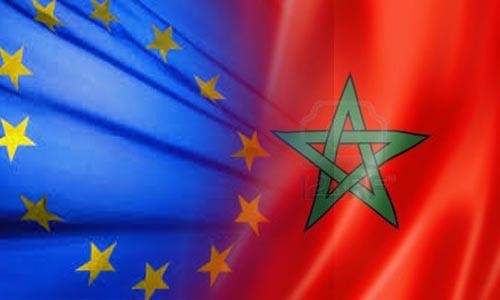“The unexamined life is not worth living”, I remember hearing the first day of my Philosophy introductory course in high school.
Then, I was still a young girl who had made a rather unconventional and hazardous choice related to her academic path: that of focusing on the study of Philosophy, despite having outstanding grades in all subjects. The pressure resulting from such a decision was overwhelming: I knew that most of my teachers, friends, and family were convinced that I was making a foolish decision. And indeed, after careful consideration, I realized that I had never even attended a Philosophy class (1) and that this choice could truly jeopardize my long years of hard labor. In addition, the prospects of employment with a Philosophy degree were not the most alluring, both in Morocco and abroad.
Nonetheless, my brief past encounters with philosophical texts had never failed to enkindle the most genuine and profound interest and curiosity, while filling my mind with wonder and of course… more and more questions. In addition, I had the conviction that the value of this discipline was underestimated, and that Philosophy had the potential to help us tackle the numerous issues that our generation is currently facing: the environmental crisis, the rise of nationalism and xenophobia, the widening of the gap between the rich and the poor, gender inequality etc…
And most importantly, I was convinced that only Philosophy could help us resolve the spiritual crisis that characterizes modern era, in an increasingly technological, desensitized, power-driven, individualistic, polarized, amoral, loveless world, where humans have put aside their benevolence in their quest for money, social distinction…and followers. Thus, it was with both a feeling of determination to prove my opponents wrong and a profound anguish to be proved wrong that I attended that very first class of Philosophy during my junior year of high school.
As you can imagine, it was with an immense feeling of relief and gratitude that I welcomed the first words of my professor during the introductory course “the unexamined life is not worth living”, that are attributed to Socrates, and that resonated in my mind as the ultimate validation that I was so desperately waiting for. Since then, Philosophy has played a major -probably the most important- role in my personal and intellectual development.
First of all, it has encouraged me to take other bold decisions, such as the one of pursuing a Bachelor’s degree in Philosophy in Honolulu, Hawaii. But most importantly, Philosophy has allowed me to deconstruct all the pre-existent “knowledge” that I acquired during my brief (unworthy) existence. I use quotations marks around “knowledge” because as you might have guessed, none of that stuff was actually knowledge, it was more of a cluster of prejudice and assumptions inherited from my culture and upbringing; as Bertrand Russell beautifully puts it: “the man who has no tincture of philosophy goes through life imprisoned in the prejudices derived from common sense, from the habitual beliefs of his age or his nation, and from convictions which have grown up in his mind without the cooperation or consent of his deliberate reason. To such a man, the world tends to become definite, finite, obvious”.
Philosophy taught me that everything, our political systems, our economies, our beliefs and religions, our relationship with others, our ethics, and even the way we think about suffering and happiness…everything is the mere result of underlying assumptions that we hold as being true, and that we seldom have the courage and willingness to question.
Thus, philosophy helped me unlearn what I had learned all these years, and taught me to become once again the child whom I once was, who was not afraid to ask “what?”, “why?” and “how?”, who dared questioning authority, who could easily recognize that she did not know , and who was constantly amazed by the world surrounding her, instead of taking it for granted.
While Immanuel Kant whispered to my ear “Sapere Aude” (often translated as dare to think for yourself), Simone de Beauvoir inspired me to break free from patriarchal chains and become an independent and free woman, and Montaigne taught me the values of cultural understanding and tolerance. Furthermore, Philosophy has also made me a better citizen, by forging my critical thinking, preventing me from falling into extremisms, and prompting me to reflect on the social contract and what it entails in terms of rights and duties. It has changed my relationship to nature and animals, whose value I no longer perceive as instrumental (serving my self-interests), but intrinsic, and it has allowed me to expand my circle of concerns, from myself, to my family, to my community, to the human species, to all living beings. Finally, this discipline has helped me redefine my perception of the self, as being not a human being, whose essence is fixed and determined, but a human becoming, whose opportunities are infinite, and who is free to define my own nature.
Today, Philosophy is one of the most undervalued subjects in all educational systems across the world, especially that of Morocco. Nonetheless, I remain extremely optimistic regarding the future of this discipline. Tomorrow, very smart machines will have replaced man in several sectors of activity (manufacturing, computer sciences, maybe even services), but the only thing a machine will never be able to do is to reflect upon morality, justice, equality, happiness, knowledge, art, and beauty, which is the faculty that makes us truly unique as a species. Let us hope that a new wave of Enlightenment and a return to Philosophy will deliver us from this period of Dark Ages.
1- In French schools, philosophy is a subject that is only introduced in the academic cursus during either the second year of high school or the last one, depending on the student’s concentration.





